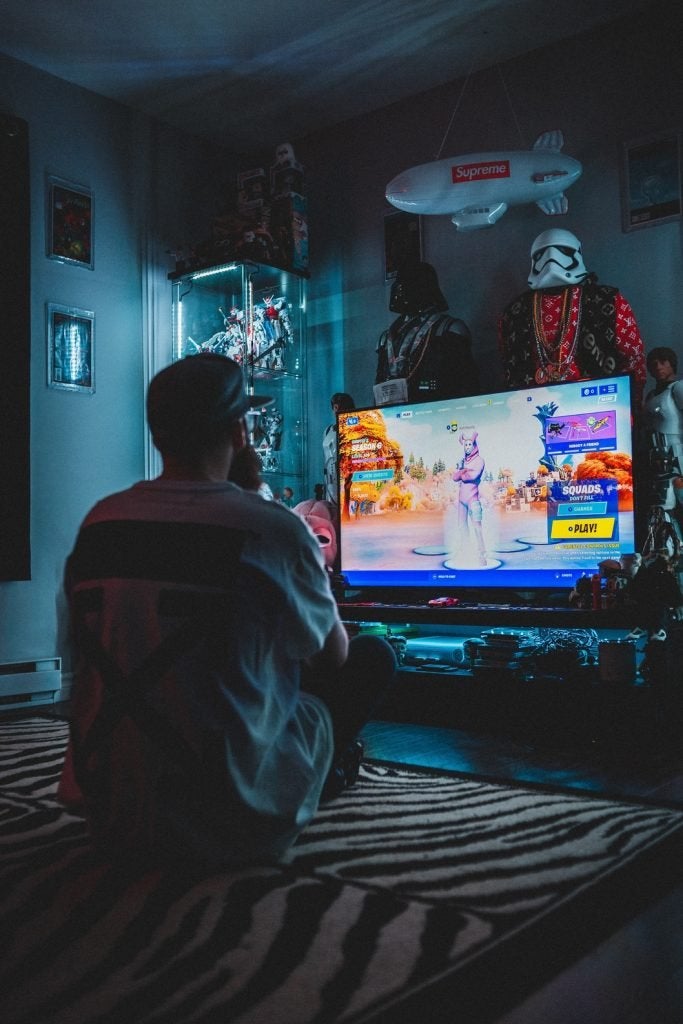
Look around for any article on video games and how they affect people's health, and you’ll see a slew of negative comments. Talk of addiction, encouraging violence and a completely sedentary lifestyle. But you and me both know – that simply isn’t true. While there will always be situations where gaming has a negative impact on players, video games can also have a profoundly positive impact on our mental health.
It is often the case that anything enjoyed by the younger generation is vilified and made out to be something negative. We’ve seen it with rock music, comic books, hip hop, fashion trends, and, of course, video games. Most of the time this is caused by a lack of understanding, and a fear of the unknown. It’s easy to see why someone looking at gaming from the outside could believe it to be harmful as they watch us chase kills, casually shoot people in the head, or steal cars left and right while joining criminal gangs.
This view of how harmful video games can be has only been compacted by the WHO’s decision to class addiction as a mental disorder and claiming that “gaming disorder” is “characterised by a pattern of persistent or recurrent gaming behaviour”. But, we already know about the bad stuff, right? We’ve heard it all our lives. So, let’s take a look at how helpful gaming can be instead.

Gaming In The Pandemic
The pandemic has changed so much about our everyday lives, but one of the most significant changes was the persistent lockdown and quarantine rules that we’ve had to live through. Being confined to our homes 24/7 for such long stretches of time meant we had to find new ways to occupy our time. For many people, this meant video games.
The gaming industry saw a big period of growth in the pandemic as well as gaming-focused platforms like Twitch. This new wave of gamers isn’t just younger people either. Older generations have been turning to video games as well, helping to diversify the scene even more.
When many of us needed a way to spend time with friends and family without leaving home, gaming was a great way for us to do this. Multiplayer titles like Among Us and Valorant have seen their popularity skyrocket and have allowed people to make new friends as well as play with old ones.
Gaming helped people to hold on to their social lives while being unable to go outside and meet people in the ways they used to. But even outside the pandemic, video games have long helped people who are less able to leave the house to have a fulfilling social life.
Social contact aside, video gaming is and always has been a form of escapism. When Animal Crossing released right at the start of the COVID pandemic, it was the perfect way for many of us to feel comforted and safe thanks to the cute characters, slow pace of game, and ability to make our own, safe space to play in. We also got a hefty dose of nostalgia with the Final Fantasy VII Remake, and new Zelda and Pokémon titles. All working together to give us worlds we can escape to where the pandemic isn’t real, the world isn’t so scary, and we can always just go back to the previous save file.

Gaming As Mental Stimulation
For people who suffer from physical disabilities, gaming is more than just a fun hobby – it can also be a vital source of mental stimulation and social contact for them. It also provides opportunities for people to take part in certain activities that they would be otherwise be unable to do IRL. And, with more and more game developers starting to pay attention to accessibility in gaming, the world is opening up more and more for disabled people.
Regardless of physical ability, video games can still provide some much-needed mental stimulation for many of us. Instead of being a passive participant in our entertainment as we would watching TV or a movie, gaming means we’re actively involved. We determine the story, the high-score, and how the game progresses. While gaming can be an escape, it’s a different kind of “turning off” than when we veg out in front of another Netflix binge session.
Gaming To Explore Mental Health
For some, gaming can be an almost therapeutic pastime (although, of course, we always recommend seeking professional help when needed). Certain titles like Hellblade: Senua’s Sacrifice focus the storyline on mental health and make the player play the part of someone grappling with serious mental health issues. Other titles act as a balm for many, helping them find comfort and calm when things get difficult.
Of course, everyone likes to blow off steam in different ways, and there really is a game for everyone. Whether you need the calm and wholesome vibes of Animal Crossing, the fast-paced tactics of Valorant, or the in-depth strategy of Sid Meier’s Civilization, it’s never too hard to find a game for you.

Related Articles








